
Don't have a New Year's Resolution yet? Try veganism!
If you’re a vegan, you probably don’t need any convincing that a vegan lifestyle feels great.
But that's not who this blog post is for, anyway. If you're still on the fence about it, or haven't yet tried going vegan, we've got some tips we want to share. Why not make veganism your new year resolution for 2023? It's a great way to actually make your new year resolution last!
In this blog post, we'll help introduce you to veganism, campaigns to bring in the new year, vegan tips, and some benefits of a vegan diet.
2023 is the International Year of Millets.
To raise awareness about millets, the United Nations, at the behest of the Government of India declared the coming new year as the International Year of Millets 2023. The proposal by India has been accepted by 70 countries and counting.
To us, this is a sign that plant-based foods will become more meaningful and mainstream. It doesn't hurt to mention that we added barnyard millets in our mylk as a commitment to include more millets in our products. We truly believe that millets possess some of the answers to food security, sustainable living and affordable, high quality nutrition.
What is Veganuary?
Veganuary is a global campaign to get people to sign up to pledge to try a plant-based diet for the month of January (a 31 day challenge.) Out of over 228 countries that participate, Veganuary India ranks third in numbers.
In 2022, 620,000 people signed up to try veganism in January, with over 65,000 participants from India alone! The meaning of veganuary is to show people that veganism is achievable, and even fun!
For those who don't know how to pronounce veganuary, it's pronounced as vee-gan-you-arie. It's a similar pronunciation as January, but with the word vegan in front of it.
You can sign up for Veganuary India here.
Going vegan is easier than you think!
What is a vegan? What does vegan mean?
Veganism is a lifestyle choice, not just a diet. By going vegan, you are making the conscious decision to reduce your carbon footprint and improve your health; as well as helping animals by reducing their suffering.
Is it easy to go vegan?
If you ask someone who has been vegan for many years, they will say it is very easy. But it can be hard for some people to give up certain foods. There's nothing wrong with immediately embracing a vegan lifestyle, and there's nothing wrong with taking some time. Any change in lifestyle—vegan or otherwise—requires getting used to, trying things out and seeing what works best.
Once you figure out what's good for your health and lifestyle, veganism follows naturally. Once you get to that point, you'll hardly notice the years go by!
How do I go vegan?
There's no single way to go vegan. People have different lifestyles, backgrounds, traditions, and upbringings. But the beautiful thing about veganism is that anyone can do it, no matter who they are or what part of life they're in.
Ultimately, veganism is about adopting a plant-based diet, avoiding animal-based materials like leather and wool, not paying for products that use animal-testing, and not supporting entertainment that exploits animals.
Can I go vegan overnight?
Yes, you can go vegan overnight. But there are benefits to taking the longer route, too. Naturally, most people will take some time. And this is normal, because it takes time to change habits and change the way we think about food. The bonus is that taking more time often results in an inspiring journey, and telling your story to others may prompt people to imagine themselves taking similar steps.
Benefits of veganism
Veganism has many health benefits, including:
-
Lower levels of cholesterol.
-
Weight loss.
-
Decreased risk of heart disease.
-
Decreased risk of various cancers.
-
Lower risk of type 2 diabetes.
Vegan tip #1: Make use of vegan cookbooks and the internet.
You can learn to cook vegan Indian dishes traditionally prepared with meat and dairy products by visiting some of the many vegan Indian cookbooks and vegan Indian recipes online.
These days, you don't have to feel lost in your journey. From Pinterest boards and Instagram accounts to vegan recipe blogs and YouTube videos that will walk you through how to do anything (like how to cut a carrot julienne style)—there's always a free resource out there designed just for your needs.
The internet is full of different vegan communities, who can help you get started with all the information and recipes you need. You may even meet some friendly people, make life-long friends, or even change the course of your life with this simple and easy step.
Vegan tip #2: Substitute creatively.
Think about your favourite food. Now, think about the ingredients that are derived from animals. The art of substituting isn't to just find an ingredient that tastes exactly like its animal-based counterpart, it can also be about enhancing a dish and making it healthier.
We put together a list of vegan alternatives to common animal-based ingredients for some inspiration:
-
Eggs. Vegan substitutes for eggs include flax seeds, chia seeds, bananas, baking powder & oil, tofu, and any product designed to mimic the way an egg tastes and feels.
-
Cheese. Vegan substitutes for cheese include nut/seed based cheeses, tofu, nutritional yeast, coconut flesh, vegan curd, vegan milk, and any product designed to mimic the way cheese tastes and feels.
-
Milk. Vegan substitutes for milk include soy, peas, millets, oats, cashews, coconut, hemp, rice, and just about anything that contains some protein and fat!
-
Chicken. Vegan substitutes for chicken include tofu, soy, seitan, mushrooms, soya chunks, daals, tempeh, rajma, jackfruit, and any product that is designed to taste and feel the same as chicken.
-
Beef. Vegan substitutes for beef include tofu, seitan, mushrooms, soya chunks, daals, tempeh, rajma, jackfruit, and any product that is designed to mimic the taste and feel of beef.
-
Pork. Vegan substitutes for pork include jackfruit, mushrooms, tofu, soya chunks, tempeh, rajma, daals, and any product that is designed to mimic the taste and feel of pork.
-
Ghee. Vegan substitutes for ghee include oil, dalda, and any product that is designed to mimic the taste and feel of ghee.
-
Butter. Vegan substitutes for butter include oil, vegetable stock, or any product that is designed to mimic the taste and feel of butter.
If you read this list and feel stressed, we want to stress that vegan food is not something to get used to, it's something to get excited about! If you think being vegan is restrictive, imagine thinking you could only have one type of pizza, one type of burger, or even one type of biryani. There's a whole world of food waiting to be explored - and devoured.
Try these vegan recipes.
Vegan Indian food is so much easier to come by than people think, in fact there are already countless dishes that are vegan by default! Think dosas, idlis, chapatis, rotis, vadas, chana masala, samosas, pakodas, poha, and more! Check out these 28 vegan Indian foods + dishes everyone already eats.
If you need more recipes, here are some to get you started:
Vegan restaurant guides in India
-
8 VEGAN restaurants & vegan options you NEED to try in New Delhi
-
Top 4 VEGAN restaurants you have to try in Bangalore + vegan options
Conclusion
Maybe this isn't everything you need to know about going vegan in 2023, but that's okay, because we're just here to help you start out. Your path will be unique, and worthy every up and down.
If you have any questions or comments, leave them below or reach out to us on Facebook and Instagram. We LOVE hearing from you!


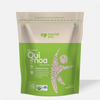
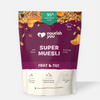
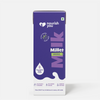
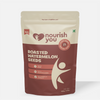
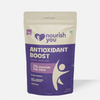
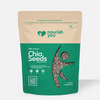


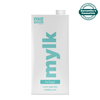
Comments
Leave a comment